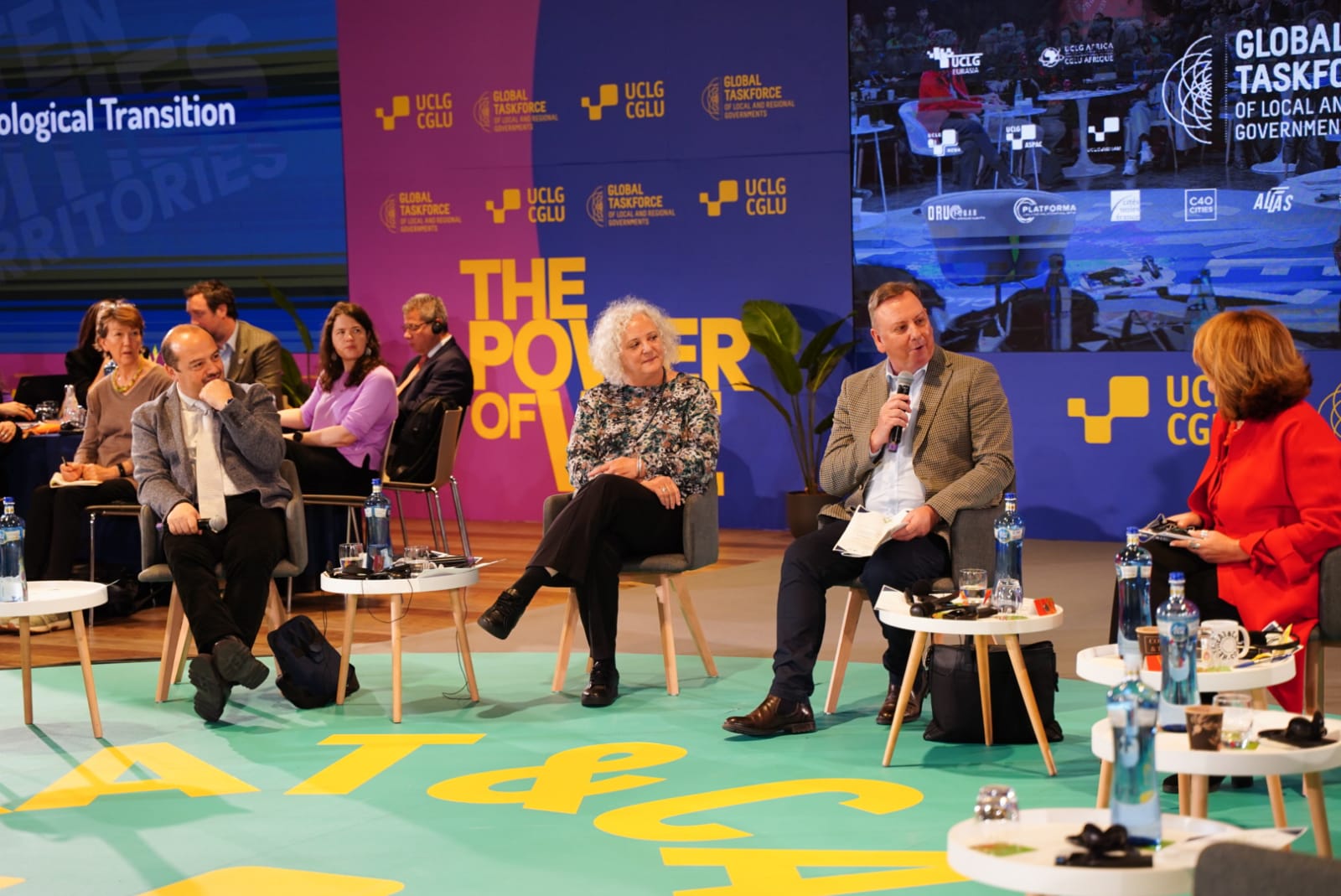SDG13 calls for Climate Action, one of the top priorities of the local and regional government constituency. “The world is not in a perfect shape regarding environmental sustainability. We are not on track in various dimensions, from oceans and water quality, nature and biodiversity to land use or climate and air quality. At the same time, we have advanced a lot regarding local and regional representations and our offerings since the Global Taskforce was created,” Gino Van Begin, Secretary General of ICLEI, explained.
Kobie Brand, ICLEI’s Global Coordinator for Biodiversity and ICLEI Deputy Secretary General explained that the UN Convention on Biological Diversity is a success story with the Kunming-Montreal Global Biodiversity Framework from 2022 at the apex. She outlined important events and networks, such as Cities with Nature and Regions with Nature, the Ramsar Convention on Wetlands, COP28, the Plastics Treaty, the World Water Forum and the Convention on Desertification, all of which are being supported by an unprecedented number of cities and municipalities around the world. These examples also show how multilateral local governments can work well with the UN on specific issues.
Next, Benjamin Jance from the Global Covenant of Mayors for Climate & Energy pointed out the importance of championing multi-level governance, for example, through CHAMP, to deliver on the NDCs and urban and climate adaptation plans. With the upcoming IPCC special report on climate change in cities, informing the process and elevating the local knowledge necessary for sustainable development is essential.
Similarly, Alvaro Soldevila, Lead, Programs and Resilient Practice, representing Lauren Sorkin from the Resilient Cities Network, stressed the importance of championing climate change: “We have morphed from managing risk to climate adaptation work, supporting energy, water and community resilience for our partners.”
Catherine Gall, Executive Director of the Entrepreneurship Territory Innovation Chair from the Global Observatory of Sustainable Proximities, introduced the work of her institution, which is inspired by Professor Carlos Moreno’s idea of the 15-minute city and the 30-minute territory. She explained that many cities are considering and embracing this notion of urban proximities to give their residents easy access to essential needs. Access to health services, equitable housing and other critical essential services are crucial areas for knowledge production within the Observatory.
“Building resilience with people and nature must be a priority,” Natalia Uribe, Secretary General of Regions 4, emphasised, explaining that the greatest threats to humanity are all environmental and that during this critical decade of action, every year counts. Some examples of actions came from Laurène Yard, Project Officer on Political Initiatives at the World Water Council, working towards the 2024 World Water Forum in Bali, and from André Viola, Departmental Council of Aude, who explained how, with the support of UCLG, his constituency was able to make crucial water management decisions.
Lastly, Yunus Arikan, Head of Global Policy and Advocacy at ICLEI, gave an overview of the achievement of last year’s COP in Dubai as well as an outlook for the coming years. “Climate change and climate action is a topic so huge on its own that it is on par with the discussion about the SDGs,” he said, calling for an end to the dichotomy between the SDG world and the climate world. At the COP28 in Dubai last December, ambitious, inclusive, multilevel agreements and events created an essential bridge between the local and subnational levels. He expressed his hope that this will inform the way towards COP30 in Belém, Brazil, in 2025, which will also be more inclusive of young people. Before closing the event, the importance of CHAMP was underlined once more.


 This publication was produced with the financial support of the European Union. Its contents are the sole responsibility of UCLG and do not necessarily reflect the views of the European Union.
This publication was produced with the financial support of the European Union. Its contents are the sole responsibility of UCLG and do not necessarily reflect the views of the European Union.